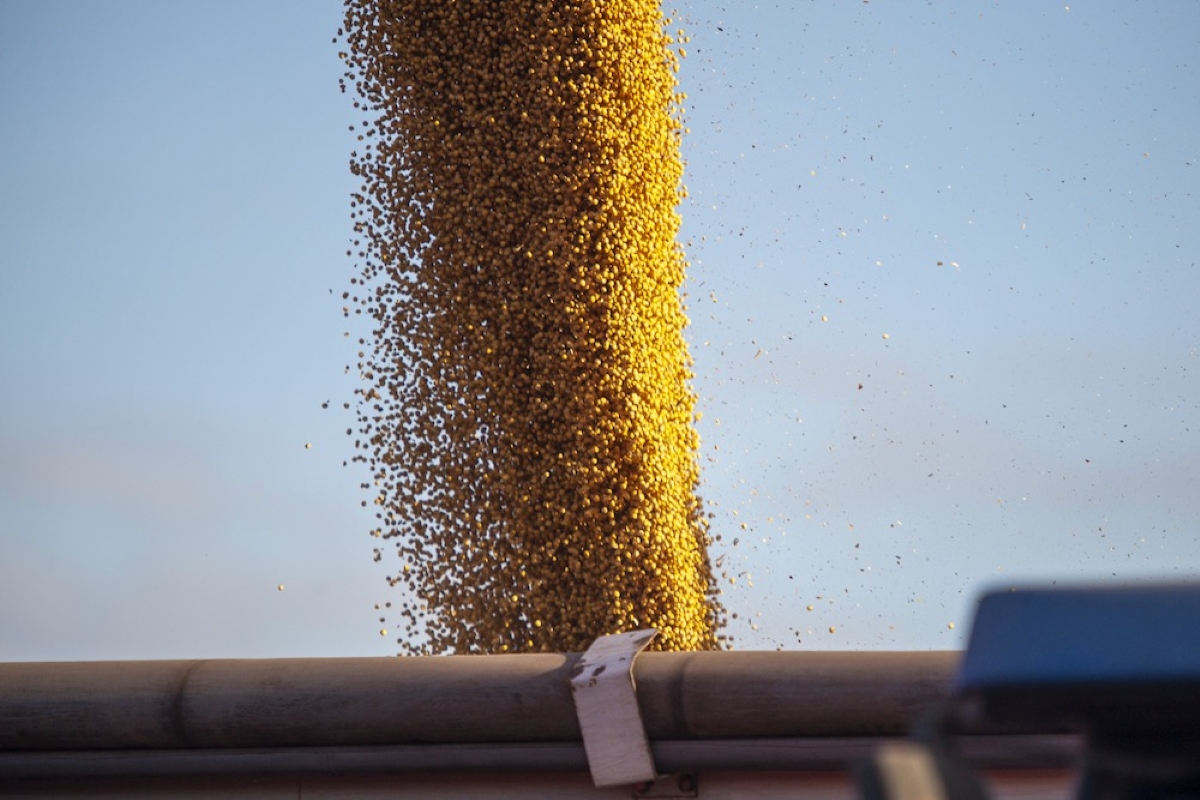The National Farmers Union and a clutch of other organizations have asked Canada’s federal ag minister to replace the president of the Canadian Food Inspection Agency, citing questions about the provenance of regulatory proposals on gene-edited seed.
CFIA officials, however, reject the NFU’s allegation that the metadata attached to the proposal document in question may suggest plant science industry lobbyists are “effectively directing” the CFIA.
The NFU, in an Oct. 17 release, cited a report last month by Radio Canada examining a embargoed Microsoft Word document it obtained on the topic of environmental release of seed.
Read Also

Brazil to reap record soy crop in 2025/2026, increase exports
Brazil’s Conab said the country will reap a record soybean crop of 177.6 million tons in the 2025/2026 harvest year, according to data released on Thursday.
Under “author,” the document’s metadata names Jennifer Hubert, the same name as the executive director for plant biotechnology at plant science trade organization CropLife Canada.
The NFU on Oct. 17 called the Radio Canada report “alarming evidence of inappropriate collaboration between our public regulator and the private corporations whose products it regulates, to the point that it appears CropLife is effectively directing the CFIA.”
MORE TO READ: Seeding the future
The NFU said the document “puts forward a system that would benefit the multinational seed corporations by allowing them to release many new gene-edited seed varieties without independent government safety assessments or other government oversight, and without disclosing they are gene-edited to government or the public.”
NFU president Katie Ward, in the same release, said the regulatory guidance as proposed would “weaken public trust in our food regulatory system by preventing independent scientific evaluation by government regulators before these products are sold.”
In the NFU’s letter to Ag Minister Marie-Claude Bibeau, Ward said the biotechnology companies represented by CropLife and like-minded groups “will be the main beneficiaries of regulatory guidance that excludes gene-edited plants from government safety assessments and public disclosure.”
In the guidance, “neither the concerns of farmers, nor the broader public interest have been properly addressed,” Ward wrote in the letter.
NFU’s former president Terry Boehm, in its Oct. 17 release, said CFIA is “formally committed to maintain regulatory independence from all external stakeholders” — thus the agency’s head Dr. Siddika Mithani should be replaced with “a new president who we can count on to put this value into practice at all times.”
‘Never’
Responding Thursday via email, CFIA representatives called out “inaccuracies” in the NFU’s release, emphasizing the CFIA remains “an independent, scientific and evidence-based federal regulatory agency committed to ethical transparency and accountability” and “always authors its own independent guidance and policies.”
The document, CFIA said, was developed in the wake of four months’ consultations in 2021 with the public, plant breeders, ag industry and not-for-profits.
Later consultations, CFIA said, were held with “seed and grain industry associations” including CropLife as well as plant breeders, researchers, organic industry associations and “non-government organizations” — including the NFU, Canadian Biotechnology Action Network and Vigilance OGM, all of which signed onto the NFU’s letter to Bibeau.
“After considering and then incorporating some of the stakeholder feedback on the draft guidance, the CFIA updated all its working documents within one of the returned copies,” the agency said, and the revised document then went out to stakeholders for further comment.
“For this reason, the metadata erroneously identifies the ‘author’ of this document as someone other than a CFIA employee,” CFIA said, but “in fact, the entire draft guidance document, including the proposed key directions, was written by the CFIA, incorporating some of the feedback from multiple stakeholders.”
External parties, including industry associations, “are never the authors of CFIA documents,” the agency said.
CropLife’s Hubert, for her part, is quoted in the Radio Canada report as saying she is not the author of the document but did provide “suggestions and recommendations.” — Glacier FarmMedia Network















